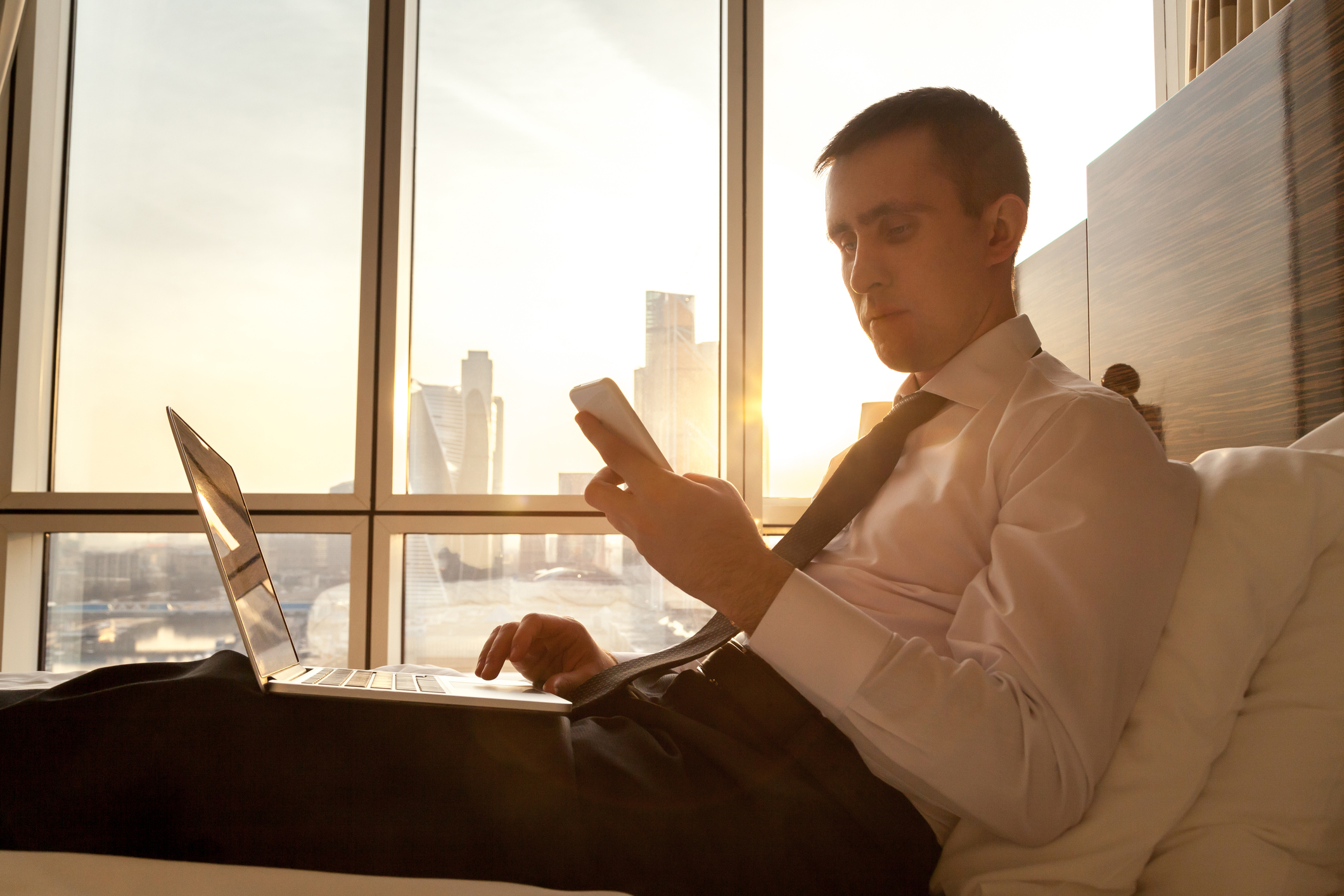Smartphones have revolutionized the ways we interact with each other and the ways we do business. The hospitality industry is no exception. Mobile technology has forced hoteliers to reinvent the way they connect with customers and how they manage day-to-day operations. Here are some of the top ways smartphones are changing the hotel business:
Booking Process
When it is time to book a hotel room, travelers are increasingly turning to their smartphones. Travel Agent Central reports hotel bookings on mobile devices increased 67% in the U.S. during 2016 (most recent available numbers). Smartphones account for 45% of bookings through Online Travel Agencies (OTA), according to Criteo’s latest travel insight report. To compete, hotels need to have online distribution that is equally effective on desktop computers and hand-held smart devices. Mobile-ready PMS platforms such as SkyTouch Hotel OS® can provide two-way channel management via XML connections with OTAs and the Global Distribution System (GDS), which can be then booked through all types of smartphones. Plus, a cloud-based hotel PMS such as SkyTouch allows for inventory pooling, so all rooms are seen on all distribution channels simultaneously.
Check-in/Mobile key
When it comes to mobile check-in and mobile hotel keys, some hoteliers find value in the hands-off service, while others question whether it limits their ability to deliver a positive guest experience and overall security at the hotel. Regardless of how hoteliers view this capability, it’s not a one-size-fits-all guest solution, as some guests will love it while others will have no interest in it.
A growing number of guests are choosing to check-in through their mobile devices, then use their smartphones as their room keys. For example, Michael Osgood, Preferred Hotels and Resorts’ Vice President of Alliance Partnerships believes mobile check-in is good for guest satisfaction. Osgood told Skift this trend allows hoteliers to focus resources back to the guests. “Guests appreciate that we have invested a lot to make the check-in experience seamless so that we can focus on enhancing the personalized guest experience elsewhere,” said Osgood.
However, automated check-in and keyless room entry do have drawbacks. First, there is a contingent of customers simply not interested in using this type of technology. Additionally, automated check-in removes the valuable initial personal interaction with the customer. By checking in guests personally, hoteliers have a chance to have personal and meaningful interactions with guests that set the tone for the stay experience. It also creates an opportunity to collect information that can be used to heighten guest experience during their stay.
As for providing keyless entry; that can be costlier to the hotel owner in terms of equipment and installation costs. Guests may run into roadblocks with this technology, too. If their smartphones or mobile devices run out of battery power, for example, they won’t be able to get into the room without heading to the front desk to get a physical key. That can negatively affect guest experience.
Room Automation
Once only found in luxury hotels, room automation is increasingly available in other lodging industry segments. One reason: mobile technology is making it easier for hotel brands to meet customer needs. Geraldine Calpin, then Chief Marketing Officer for Hilton, told The Independent last summer, “We believe that everyone wants to control their life from the palm of their hand. We will enable you to personalize the in-room experience, things like television and temperature, all from your smartphone.” Enabling those systems is now easier than ever when combined with the SkyTouch Hotel OS®. The system features interfaces that connect to energy management systems, room locks, in-room movies and more, all seamlessly.
Housekeeping
For hotel support staff, the smartphone is revolutionizing multiple hotel departments, including housekeeping. Notifications can be sent directly to staff via their smartphones, saving time and paperwork. A mobile-ready PMS alerts staff to which rooms are occupied, which ones must be cleaned immediately, and which rooms can be put back into service. That saves time that housekeeping personnel are on the clock, increasing staff productivity while speeding up customer service.
Our relationship with smartphones and mobile technology is still in the formative stages. Though we cannot quite grasp where this incredible technology is leading, we do know it is crucial to stay focused on the new opportunities they create.




